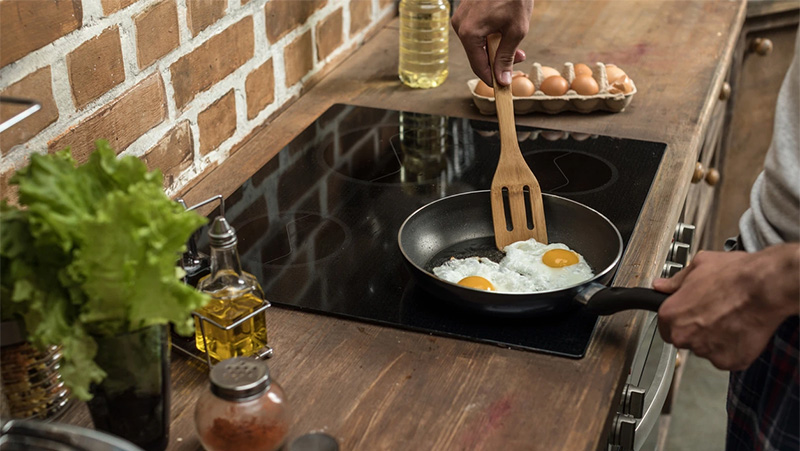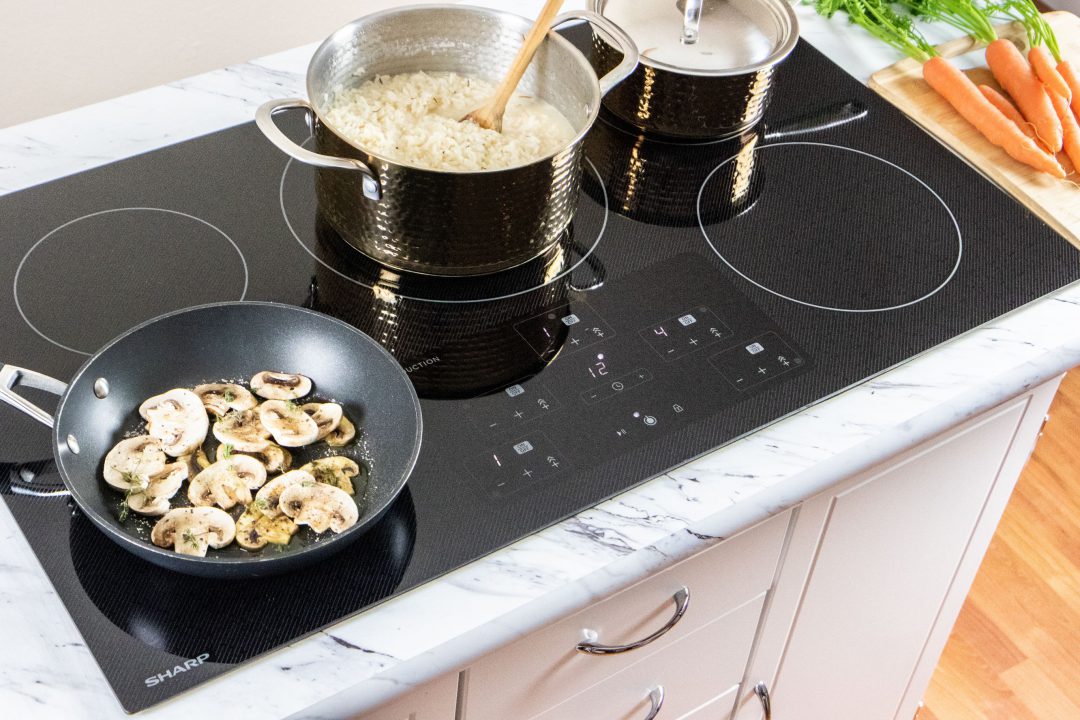Thick vs Thin Cast Iron for Induction: Which is Best?
Written By James Morgan
Choosing between thick vs thin cast iron for induction can be a tough decision for barbecue lovers. The thickness of cast iron affects your cooking experience significantly, especially when using an induction cooktop. Whether you're achieving the perfect sear on a steak or simmering a rich sauce, it's vital to grasp the differences between thick and thin cast iron cookware.

Understanding Induction Cooking
Before we explore the pros and cons of thick vs thin cast iron for induction, its important to understand how induction cooking functions. Induction cooktops utilize electromagnetic fields to heat cookware directly rather than the cooking surface itself. This requires cookware that can efficiently conduct magnetic energy. Cast iron is often preferred for induction cooking due to its remarkable heat retention abilities.
The Case for Thick Cast Iron
Thick cast iron pans are prized for their superior heat retention and even distribution of heat. This makes them perfect for slow cooking and maintaining consistent temperaturescrucial for perfectly cooked brisket or tender, juicy ribs. The extra thickness also provides a buffer against rapid temperature changes, helping to cook food evenly without creating hot spots.
However, the weight of thick cast iron can be a disadvantage. For barbecue enthusiasts who frequently transfer their cookware from stove to grill, the heft can be a significant factor. Additionally, thick cast iron takes longer to heat up, which may not be ideal for those quick searing tasks.
The Benefits of Thin Cast Iron
On the other hand, thin cast iron cookware presents a set of unique advantages. It heats up rapidly, making it an ideal choice for high-heat cooking methods such as searing and frying. If you enjoy getting a perfect sear on your steak before finishing it on the grill, thin cast iron could be your best bet. Plus, its lighter weight allows for easier maneuverability, especially when moving food from the cooktop to an oven or grill.
Nonetheless, thin cast iron doesnt retain heat quite as well as thicker alternatives. This could make it less suitable for slow-cooked recipes that demand steady heat over extended periods. Additionally, thin cast iron is prone to developing hot spots, which can lead to uneven cooking.
Choosing the Right Cast Iron for You
The choice between thick vs thin cast iron for induction ultimately hinges on your cooking style and personal preferences. If your focus is on slow-cooked barbecue dishes that require steady, even heat, thick cast iron is likely the better option. Conversely, if you're more inclined toward quick, high-heat cooking and prioritize portability, thin cast iron might be more your speed.
It's also crucial to consider the specific requirements of your induction cooktop, as not all cast iron cookware performs equally on every model. For further insights on this topic, check out this informative article on induction and cast iron.
Additionally, you might want to learn how to properly use your cast iron post-induction by visiting our guide on restoring cast iron. For those interested in making pizza, our tips for pizza on cast iron will not disappoint. Did you know that some induction-friendly pans can really enhance your cooking experience? And if youre curious about heat management, learn how to cool cast iron correctly after using it on induction.

FAQs
1. Does cast iron work well with induction cooktops?
Absolutely! Cast iron is compatible with induction cooktops thanks to its magnetic properties, making it a favored choice for its heat retention and versatility.
2. Is thicker cast iron always better for cooking?
Not necessarily. While thicker cast iron excels in slow cooking and even heat distribution, its weight can be cumbersome and it may take longer to heat. Your choice should align with your cooking habits.
3. Can thin cast iron affect the cooking process?
Yes, thin cast iron heats quickly and is ideal for high-heat cooking. However, it may not retain heat as effectively as thicker options, which can impact slow-cooked dishes.
By understanding the distinct features of thick vs thin cast iron for induction, you can elevate your culinary skills, especially when it comes to crafting those irresistible barbecue dishes. Whether you opt for the robust, heat-retaining characteristics of thick cast iron or the lightweight, rapid heating advantages of thin cast iron, both types have a valuable role in any barbecue enthusiast's kitchen.



